Business Advice
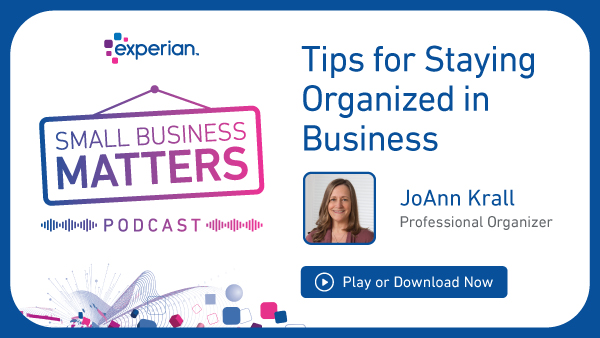
JoAnn Krall, The Sensible Organizer | Small Business Matters Do you become overwhelmed when you think about reorganizing your business? Or perhaps the idea of overhauling your digital file storage is keeping you up at night. If this is you, we have a great conversation worth listening to in the latest episode of Small Business Matters. Our special guest this week is JoAnn Krall of The Sensible Organizer. Key takeaways: During our chat, we hear how a series of life events and personal losses caused JoAnn to disrupt her career by starting her consulting business, The Sensible Organizer. She shares how she helps her small business clients to adopt organizational techniques that fit their personal style. We also delve into the shame that most disorganized people feel, and we finish by talking about a few different project management systems we use. What follows is a lightly edited transcription of our interview. Gary Stockton: Staying organized in your business helps you to thrive, and a well run organized business with efficient processes can grow faster and gain success with greater ease. But being organized doesn't come easy for some of us. Some business owners really struggle with it. Today we're in conversation with Joann Krall. She's a professional organizer who works with business owners who struggle with organization in their homes, businesses, and life. 16 years ago, Joann started her company, the Sensible Organizer, but Joanne tells us she's been helping others to stay organized her whole life. Joanne, welcome to Small Business Matters. Joann Krall: Thank you for having me. Gary Stockton: So doing something we love is the road to a happy, fulfilling life. What is it about organizing that made you want to pursue it as a profession? Joann Krall: I always say I was born, organized, I was organized my whole life until I wasn't. So for me a series of life events, having children retiring from accounting, having children, and then losing my parents I lost my parents within weeks of each other. And then running my own home-based businesses. Things just they fell apart. Everything was different. So I had to relearn everything. And once I got myself back on track, I realized that I could help others because I learned through my process that cookie cutter solutions don't work. I try, I read every book, I tried every process. And as somebody who had been organized, I started to recognize that, you know, these aren't working for me because of this, and this isn't working for me because of this. And I had to put everything together and piece my own, piece, my own way path forward. And yeah. So I love helping other people do that. It's my favorite thing. Gary Stockton: That's awesome. So it's, something you've, you're very passionate about and, this came about after a very significant loss in your life. I'm very sorry for your loss. This inspired, were you throwing yourself into business at that point, throwing yourself in as a distraction? Or, is it what, was the thing that really triggered that inspiration for the business? JoAnn Krall: Yeah. So the first business I started When I retired f so I had my first daughter. I wanted to work a flexible schedule back then. Yeah, many years ago over 25 years ago. There just was no flexible schedule, so I just looked at my husband and said, I'm gonna leave, and he. He, deal, he dealt with it, but it all worked out in the end. And so I stayed home with her. But I needed to work. I, wa I loved being a mom and being home, but I also needed to do something. So I started I just started doing direct sales for the longer burger company actually, which is a big part of longer Burger baskets are for organizing things, right? So I loved that whole aspect. So that really wasn't that, but then I had my second daughter and things started getting a little bit more chaotic. And they were only four and two years old when when my parents passed away. I, the next business I started literally two months after they passed away. And I think it was a distraction. And again, that was another direct marketing, it was teaching pe, it was creative memories, it was teaching people to scrapbook. So for me it was about preserving those memories. So it all tied in emotionally. Yeah. So that was a distraction. As time went by I was like, why can't I organize these business? Why can't I organize my house? Why can't, why am I so stressed? I didn't see it for what it was because I had always been organized. And I had a breaking point. One day I was trying to get my daughters to a, swim lesson and there was just a mess in my office. There was a mess in my kitchen, there was laundry piling up and I just was the moment I dropped them off, I just got in the car and lost it. And then I just sat forward and said, all right, I gotta pull myself together and I gotta figure this. Gary Stockton: count myself among those who consider themselves a bit disorganized and, for me it's something I'm a bit ashamed of to be honest. Does shame come up often in, in how you address organizing with business owners that you work with? JoAnn Krall: It does. And there really, there is nothing to be ashamed about, but it's hard I can say that, but people are still gonna feel shame. Yeah, people have a lot of shame around it because just organization can affect, it affects everything in our lives, right? It can affect our health, it can if, it can affect our businesses, if we're disorganized and we don't look professional to people or maybe our finances are a mess. Nobody wants to talk about how much debt they have and oh, I I lost this amount of money doing this and I'm not making money because I'm not doing it right. So there is a, people do feel a lot of shame around it. And I always say that we should never be ashamed of it because not everybody is born organized. It can be taught. But it has to be taught properly. Just because somebody's organized, so say I had tried to organize people when before any of that happened to me, I probably wouldn't have been able to do it because I would've known my way of organizing and I would've taught them that way, and then they would've gone off to try and do it and it wouldn't have worked. Now I have the sense that, okay, now I know why things don't work for people. So it's finding out about finding out. About how the way people, about how, the way about the way people work and just trying to make little tweaks and not, making this big change in their life and saying, okay you're, doing this. Okay, let's you've got all this paper, let's make you all digital. Let's just scan it all in. That's not gonna work for everybody, so it's all the, it's a lot to it. Gary Stockton: I scanned all of my stuff a couple of years ago cuz I had just file cabinets full of paper. And I haven't looked at it since, which I, it could be a good thing. But and thankfully what the system that I scanned into I did do the indexing I had tagged everything pretty much. So it's easy to find. You have you have that, I find it's a free, it was a freeing exercise for me. It, felt I felt. After I, I did it. Is that a common result of, organizing things? JoAnn Krall: It, is. And even myself, when you talk about all the paper right before the pandemic hit, we were thinking about selling our house and I thought I can't move all I had f I had a lot of filing cabinets. They were all organized, they were beautifully organized, but they were filled. And I said, I can't move all of this. What am I gonna do? So I, spent a cuz then the pandemic hit and I had plenty of time to sit there. And s I shredded I think I walked away with maybe 20 tall kitchen garbage bags of shredding. That's how much paper. It's stacked and stacked. And I just, I shredded I, chipped away at this. I didn't do it all at. Shredded 95% of that paper, I maybe scanned about 2%, and then I have a 3% maybe still in paper, not a lot. It is it's a good feeling and it knowing, what you have and knowing for you, you scanned it all and yeah, you may never look at it again, but you've got that peace of mind know. If I had to, I have it and it's organized. Because sometimes people will scan it all and they don't organize it and that can cause a lot of stress. Gary Stockton: Yes. JoAnn Krall: Not knowing where things are. Gary Stockton: So what are some of the, biggest problems small business owners come to you with? JoAnn Krall: Yeah, so people mostly especially I work with a lot of people that work for themselves. So whether they're coaches, consultants small business accountants or things like that. They I would say the biggest thing and, this has evolved over my business it used to be paper and now it's digital, and then there's that group of people in between that struggle with both. So it's really about information. What, information are we keeping? Where are we keeping it? Are we keeping too much? Are we keeping we're not keeping enough? So it all, most of it all revolves around, I'll say information because a lot of people who have their own small businesses we tend to be information hoarders. We hoard all of the classes. We hoarded all of the resources, the articles and, things, and we in all different places. So that's a big piece. Gary Stockton: Yeah, I've I've actually come a long way in, the way that I organize information particularly now that I work with media. I used to have video projects that had images off in these other miscellaneous folders and file my projects would be yours always missing a, piece of media. And I got this, watched a, really great video on organizing. A video catalog and even photography. Now everything's tagged face, recognized everything in in Lightroom. My project management on the other hand it could probably use a bit of help. I'm using a, project management system called WRIKE. And it's multi-layered. It's highly customizable. Do, you use systems to when you are organizing things for, business owners that, I mean there's, several, there's Trello and, other systems. JoAnn Krall: Yeah. And, I don't I don't recommend one specific one. For me it's I, because I, was talking about this earlier, to someone that, I used to use Trello for my personal and Asana for my business because I always heard you gotta have a project manager system. This is the thing. And I don't know why I picked those two and I don't know why I didn't combine. But I never opened either one of them and I couldn't tell you why. It probably just, I don't know, I just never thought to, maybe I didn't enjoy being in there, maybe I don't know. It just didn't, it didn't feel right to me. So sometimes it's just a feeling. So so personally I use click up now. Oh, and it could be because like the colors like you have on the screen here. Yes. That's very much how click up is. And it just, I don't know, makes me feel good when I go in there. But I also I also figured out too, the way it's laid out, it just works for my brain. So yes, when I'm working with people, I will oftentimes walk them through different systems and get a f and, see what they're saying about it. And how they're feeling. If sometimes I'll show somebody click up and they'll go it's like a blank slate and they're like, no, I don't know what to do. And I'll say, okay, maybe I'll send them off to a friend of mine and say, who has a YouTube channel? I'll say, watch a little bit of it, and then if you still feel that way, okay, we'll move on to the next one. I never want people. Taking all of their stuff and putting it into a project management system. Taking all the time, putting it in because someone said, you gotta use monday.com, or you have to use click up, because that's just a waste of time. So sometimes it'll be just like, Hey, let's pick a small project. You're doing a you're doing a livestream next week, what are your steps? Let's put the steps into a project management system cuz they all have free trials. Put it in there and see how it feels and did you use it and did you like it? Sometimes it's just, it is a matter of trial and error. Because our we all work differently cuz even within the project management systems, you've got the different layouts. You've got the CanBan board, you've got calendar view, list view. Gary Stockton: For me it's, anything to get away from having lots of spreadsheets all over my hard drive. JoAnn Krall: Yes. Gary Stockton: One central place that I can go to. One source of truth about content that's, my primary function here at Experian. So that's where I can go and I can see the timelines. I can see which projects are off track, on track. So it's been helpful, but I think I could be maybe more of a power user, so yeah. JoAnn Krall: And. Sometimes it's you have to just look for those down times of to really, and not just change everything. Just really think about how you're u you know, I always tell people, evaluate everything. You know from the moment you get to your desk. Did you look at your project management system? No. Why? You know what I mean? What, you know what? It's all that. Why aren't you? What are you doing first? Maybe they're writing a list and so that tells me something about their brain. That pen and paper and writing down that list is a part of their process. Gary Stockton: Perfect. So we're just starting to emerge from this two plus year pandemic. Was it a time to reorganize for the business owners you work with? And, how did your business change during COVID? JoAnn Krall: Yeah. Actually you would think it would've been a time for pe my, clients to organize. It, was anything but that. They most people a lot of people, so I, do work with a lot of people who work from home and they were functioning wonderful, working from home prior to the pandemic. And many like myself the pandemic threw that all off because now they weren't working at home alone. They had a spouse home. They had children home. So that really, threw a wrench in a lot of people's businesses and plans. They and then the people that were working outside of an office were now working at home and they weren't used to it. There was a lot of adjustment that went on during that period. I used to, people used to say, oh, you must be thriving during this pandemic with everybody with more time. And it's not true because it's, the reason people are disorganized is not because of usually, not because of the amount of time they have. There's something else, there's another reason why they're disorganized. So the people that we saw getting, oh, look it, I'm getting all of this organized. They're already organized. They're just tweaking things and making things look nicer or they're doing a little bit of adjustments here and there. They weren't. Or maybe they were overhauling a closet because they didn't, for them it was about time. They're already organized. They just didn't have time to get to like their closet or their if they're at home or they didn't have time to get to their files or their digital files. But now they did have time, but they already had the, skills. So those wouldn't be my clients if somebody already has the skills to get organized. And then personally for me that translates all to me. I, right before the pandemic, I was doing great and, I did have a a good, amount of members and a group coaching program right when everything hit. And I was able to take them through it. So it was great. They were already in the mindset to get organized. They weren't it wasn't the pandemic hit and then through them off, they were already ready. So they were committed and we work through it. And, I'm seeing even not just now, but before, I'm starting to see people climb out of that. Now they're ready. They're they're like this is my new life. I'm working from home. Everybody's home. I can't just I can't put it off any longer. So they're starting to trying to figure out, cuz it is a challenge for people who have worked in an office to now work at home or worked at home and now have other people around. There's that whole adjustment. Gary Stockton: So what do you say to business owners who feel overwhelmed at the thought of organizing their business? Why do we feel overwhelmed around this topic? JoAnn Krall: There's many reasons. One being people have tried over and I, air quotes, failed. I don't see any failure. I just see lessons. Trial and error is one way to go, right? There's one you just try something, it doesn't work. You move on to the next thing. You try something, you move on. Go on to the next thing. Yeah, that can get really tiring over time, especially if you're, never finding that one thing because sometimes like I said, we're somebody's picking a cookie cutter solution and then they're picking another cookie cutter solution and another one, not one of those will work as they are. You need to pull pieces. So it's under understanding that. So that's a big overwhelm knowing that we. Businesses, they just have too much stuff. It goes back to the information hoarding. Yeah. Whether it's. Paper or digital form it's just overwhelming. You just look at it and you go, I don't know where to start. You open up your laptop and you have not you, someone has just a sea of files on their desktop because that's where they put files when they do stuff, or they look into their download folder and there's A thousand photos or a thousand photos or a thousand files, and they're like, I don't know what to do. And then they get thrown off by I've got all these on my, computer, and then I've got a Dropbox over here and I've got Google Drive over here, and I've got Google photos and I've got, it's just, there's stuff everywhere and they feel they, in their brain, they know there's versions of that there I don't know which version so it's because a lot of times when we're working on the fly, we just quickly go and do stuff and we we don't, we may not rename things or we may not put them where they're, they need to go. So it does, it adds up because it's not physically it's easy to just shut the laptop. Yeah. And you. There's no best, but it is a mess. Gary Stockton: It can add up in, in terms of, losses for the building for the business. Robert Irvine, his wonderful show. I think it's Restaurant Impossible. One of the things that he really zeroes in on is the menu and yeah, so many of these stories are restaurateurs that have these menus that have just got too many items. And they have to keep that covered in terms of inventory. Yeah. And then the spoilage. So he really zeroes in on, on optimizing the menu. And, really frees a lot of these businesses. Once they, they realize and they, learn how to price the, recipes properly and buy the right levels of inventory, even putting POS systems in. Or upgrading those. Yeah. Can really take a business to the next level. JoAnn Krall: It's about streamlining and you, you are talking about a menu when you're using something, thinking about how else it could be used and making sure that, yeah, you're just reducing what you have coming in for sure is huge. Gary Stockton: So tell us about an entrepreneur you worked with who made progress in their business after organizing with your company. JoAnn Krall: Yeah I'll use a client of mine who actually, it's a, they have a family business. They actually have an orchard. And so she came to me because she just, she had an overwhelming amount of paperwork and so it was from, Personal stuff, but she wanted so desperately to work in the business and she was self-diagnosed like yourself. She would say "I'm disorganized." And her whole family was like, "yes, we agree." So, she came to me and, we were actually dealing with some, personal paperwork from estate stuff that had gone on. But also like her day-to-day stuff for herself. And we started with that. And we she had the huge breakthrough of letting go of the, real, the hard stuff, the emotional stuff, getting herself into an organized routine. Because she was somebody who was a former teacher and she was organized in her classroom but she couldn't figure out how to do it in, this, at home and with her personal stuff. So we got all that organized and now she does all of the marketing for her, the orchard. They're like, yeah, oh, wonderful. You're organized and you, can get it done. Yeah, like she's one of my, favorite examples because she just lights up and she's just so ah and, even when she gets like something thrown at her, cuz she did have a lot of stuff thrown on her during the pandemic illnesses and, baby grandchildren being born she was able to just go, okay, I know how to get back on track. Because that's part of it, organ it's organizing isn't one and done. You can get to a place where you're organized and then be thrown off track by something and then have to put it all back together. But the important thing is knowing the steps to do that. Gary Stockton: Any closing thoughts on staying organized in your business? JoAnn Krall: Yeah. It's so important not only for our stress levels, but for financially. And, that goes on two ends, right? We are either saving money or we're making more money. So being organized is definitely gonna save you money. That goes back to your restaurant thing of not having a lot of for them, like bringing in. Too many ingredients and throwing 'em away. If we could even look at it to softwares that we have getting what, subscriptions are you paying with if you don't know what money is going out and what it's going to, and if you're using it or not, or when it's up. Cuz sometimes we'll be like, I haven't used that, but oh they just charged me for it. And then you're like, I don't know where to find the information to stop it. So there's that part of saving money, but then being more profitable for people who. Are billing clients. If you're organized and you're working with clients and they see you as organized and professional, you know it's gonna make them wanna continue to work for you, work with you. And some people may be like, Nope, you're just too all over the place. You could be the best organizer in the world. I can't, that's probably a bad example, but you could be the best at helping people get organized. But if you're, you, yourself are not organized and you're missing appointments, or you're missing deadlines, that's gonna cost you money in the long run. I'd say it comes down to time and money. Cuz time is money. Gary Stockton: Amen. Amen. Joanne, this has been so helpful. Tell our listeners how they can learn more about the sensible organizer and how to start a conversation with you. JoAnn Krall: Yes, you can just head to my website. It's JoannKrall.com. And everything about me, you can find everything about me there, all the socials. I'm pretty much on all the socials as Joanne Krall, so I'm happy to connect with people on any of them, whichever one they prefer. Gary Stockton: Awesome stuff. Thanks so much for coming on Small Business Matters Today.
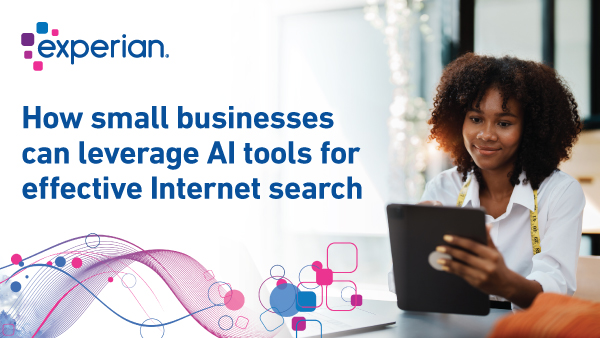
AI and natural language processing tools play a crucial role in enabling businesses to understand and cater to your customers' needs.
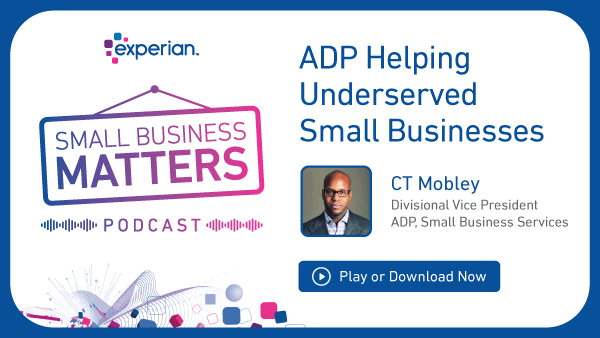
We are celebrating National Small Business Week with CT Mobley from event sponsor ADP about how they are helping underserved small businesses.
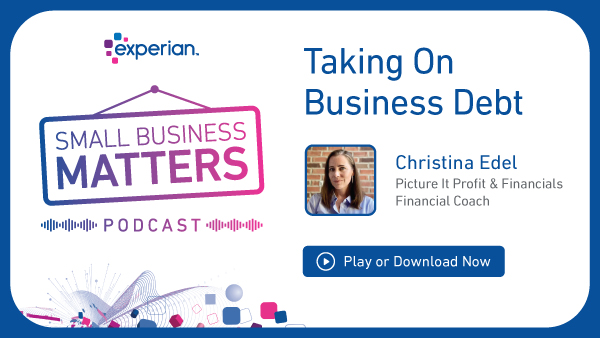
Taking on debt can be a necessary part of growing a business, but it also comes with its fair share of risks. Rising interest rates, a decline in sales, and even unexpected global events like Pandemics and Supply Chain crises can change the dynamic of financial obligations we took on when things looked stable. So for this small business matter, we're going to talk about taking on debt with Christina Edel.

This article can help you decide whether business coaching is right for you, and offers tips to find a coach who can help you reach your goals.
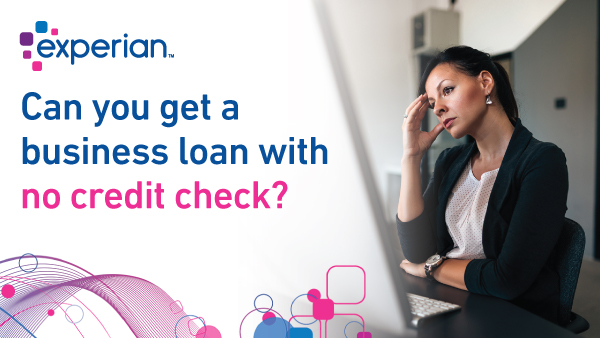
As a small business owner, finding capital to build your business is one of your top priorities. But if you don't yet have a business credit history and your personal credit history needs some work, it can be difficult to get approved for most business financing options. You can still find a way to get a business loan with no credit check, but it will likely cost you more to do so. There are some business funding options you can pursue that may not require a business credit check. Here's what you need to know about those options and how to improve your chances of getting affordable financing for your company. How a Business Loan Differs From a Personal Loan Some new business owners use personal loans to start a business. Both personal loans and business loans typically require a credit check, but some business lenders may review both your personal credit score and your business credit history. If your business is new, or if you are a sole proprietor, your personal credit history will be more heavily relied upon. Business loans and personal loans differ in the following ways: Collateral: While most personal loans are unsecured, many small business loans require that you put up collateral. Additionally, many commercial lenders also require a personal guarantee, which means that you're personally liable to pay back the debt if your business can't pay. Building credit: Personal loans can be a great way to build your personal credit score, but small business loans are better if you want to build a business credit history. Keep in mind, though, that not all commercial lenders and financing options will report to the commercial credit bureaus. Do your research to make sure you're getting credit for your on-time payments. For both personal and business loans, there are some alternative financing sources that don't require a credit check at all. These loans typically involve some risk, and you’re likely to pay more in interest rates and fees on the loans. Business Financing Options That Don't Require a Credit Check Standard business loans from a bank, credit union or even online lender typically require a credit check. If your credit is less than stellar, these may be out of the question. However, there are other funding options to consider that might be a good fit for your needs. Microloans Microloans are small-dollar loans offered by nonprofit organizations that are designed to help new, small or disadvantaged businesses. These loans often don't require a credit check, and they may even charge low-interest rates or no interest at all. That said, they're typically reserved for startups, and you may need to meet other requirements, such as having family members and friends act as peer-to-peer lenders . Also, loans are typically capped at $10,000 to $15,000, depending on the organization. Vendor Credit If you regularly purchase supplies or inventory from vendors, you may be able to set up a trade credit account with them. This can allow you to pay your bill 30 days or more after your purchase date. In some cases, vendors will report your payments to one or more of the commercial credit bureaus including Experian. That said, some vendors may require a credit check—or at least a history of on-time payments with other vendors —so you may need to shop around to find one that will work with you. Invoice Factoring If your business gets paid by clients through invoicing, this could be worth considering. Invoice factoring involves a small business owner selling an invoice to a factoring company in exchange for an upfront payment based on a percentage of the invoice amount. In return, the factoring company takes over collecting the payment from your client, after which it pays the remaining balance minus fees and interest. Invoice factoring doesn't require a credit check because it's not technically a loan. It can be an easy way to get paid faster for work you've already done, but it's important to note that it could impact your relationship with your client, especially if they pay late or have a poor experience with the factoring company. Merchant Cash Advance A merchant cash advance (MCA) is also technically not a loan; rather, it's an advance on your future sales. In exchange for an upfront payment, MCA providers will take a percentage of your daily credit and debit card sales or a fixed daily or weekly payment from your bank account. MCAs can be easy to get, even with bad credit, because the provider is more concerned about your sales record than your credit history. That said, merchant cash advance APRs can climb into the triple digits if you're not careful, so it's generally best to avoid them in most cases. Make It a Goal to Build Business Credit for the Future Even if you need a business loan with no credit check right now, it's a good idea to prioritize building both your personal and business credit to widen your selection of options in the future. It can also help you qualify for lower interest rates and better repayment terms. Review your personal credit report and credit score to see what steps you can take, such as paying down credit card balances, getting caught up on past-due payments, disputing inaccurate credit report information, and more. You may also opt to get a secured credit card to add a more positive payment history to your credit file. For your small business, make sure you're working with lenders that report your payments to the credit bureaus. Many lenders that don't check your credit don't do this, so you may need to establish your business credit profile before you can start building your business credit. As with your personal credit, it's important for your business to pay its bills on time and avoid overextending itself on debt payments. While you might have a hard time getting a bank loan, you can start with business credit cards and vendor credit and then build from there. About the author Ben Luthi has been enthralled by personal finance and travel ever since he spent time abroad in college. He has worked in financial planning, banking and auto finance, and writes about all aspects of money. His work has appeared in Time, Success, USA Today, Credit Karma, NerdWallet, Wirecutter and more.
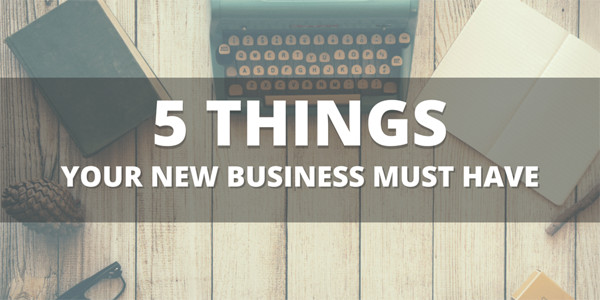
What does it take for a new business to succeed? Contrary to popular belief, you need more than a great product and some funding to get your business off the ground. Here's a new business checklist to help you make sure you've got everything covered. 1. A Mobile-Friendly Website: Your Digital Storefront The percentage of people who access websites from their phones and tablets is still on the rise. Therefore, it’s really important to make sure that your site looks good on any device, and still highlights the same essential information you want all of your customers to see. It's no longer an option, but a necessity in today's mobile-first world. Let's take it a step further: Think beyond responsiveness: Ensure your website offers a seamless user experience across all devices, not just different screen sizes. Consider mobile-specific features like click-to-call buttons and fast-loading pages. Optimize for local search: If your business has a physical location, prioritize local SEO strategies to get in front of potential customers searching for nearby options. Embrace visual storytelling: Use high-quality images and videos to showcase your products or services effectively, catering to shorter attention spans on mobile devices. 2. Content Marketing: Attract, Engage, Convert Well-written content is indeed powerful, but go beyond static information. Consider these content marketing strategies: Create diverse content formats: Blog posts, infographics, videos, case studies, and even interactive quizzes can cater to different learning styles and preferences. Establish thought leadership: Share your expertise and insights on industry trends and challenges to position yourself as a trusted resource. Leverage storytelling: Craft compelling narratives that connect with your audience on an emotional level and build brand loyalty. Optimize for search engines: Implement SEO best practices to ensure your content reaches the right audience through organic search. 3. Compelling Calls to Action: Guide Your Audience Don't leave your website visitors guessing what to do next. Craft clear and actionable CTAs that align with your marketing goals. Here are some tips: Use strong verbs and specific language: Instead of "Learn More," try "Download Our Free Guide" or "Schedule a Consultation Today." Place CTAs strategically: Position them where they make sense in the user flow, like at the end of informative blog posts or product pages. Personalize your CTAs: Consider A/B testing different CTAs with different audiences to see what resonates best. Track and analyze results: Monitor the performance of your CTAs to understand what's working and adjust them accordingly. 4. Marketing Beyond Paid Ads: Building a Multifaceted Strategy While paid advertising can be a valuable tool, it's crucial to diversify your marketing approach. Here are some additional ideas: Embrace email marketing: Build an email list and nurture leads with targeted campaigns that offer valuable content and special offers. Engage on social media: Actively participate in relevant online communities, share valuable content, and respond to comments and messages. Partner with influencers: Collaborate with individuals who have established credibility and reach in your target audience. Network and build relationships: Attend industry events, connect with other businesses, and participate in local initiatives. 5. Customer Centricity: The Heart of Success Going beyond simply wanting to help people is crucial. Truly understanding your customers' needs, challenges, and aspirations is key to building lasting relationships. Here's how: Conduct market research: Gather insights into your target audience through surveys, interviews, and focus groups. Track customer feedback: Actively solicit and analyze feedback from customers through surveys, reviews, and social media mentions. Personalize your approach: Segment your audience and tailor your marketing messages and offerings to their unique needs. Deliver exceptional customer service: Prioritize building positive relationships with your customers through prompt and helpful responses. Bonus Tip: Maintain a Good Business Credit Score Maintaining a good business credit score is vital for the long-term health of your company, no matter its size. It directly impacts your ability to secure funding for growth, negotiate favorable terms with suppliers, and even attract talented employees. A healthy score reflects strong financial responsibility, making you a more attractive partner and reducing the risk associated with doing business with you. Equally important is regularly monitoring your business credit report to identify and address any errors or fraudulent activity promptly. These issues can not only damage your score but also expose your business to financial vulnerabilities. Vigilant monitoring allows you to proactively address concerns, protecting your creditworthiness and safeguarding your company's financial security. Bonus Tip: Embrace Agility and Continuous Learning The business landscape is constantly evolving. Be prepared to adapt your strategies, learn from your mistakes, and stay ahead of the curve. Regularly reassess your approach, invest in professional development, and keep an eye on industry trends. Starting a new business can be overwhelming because there are so many things that you have to think about. That’s why it’s important to become an entrepreneur for the right reasons and do something you love. Above all, remember to have fun! Sources: http://www.smartinsights.com/mobile-marketing/mobile-marketing-analytics/mobile-marketing-statistics/ http://www.seo-e.com/online-marketing/develop-strong-call-to-action.htm https://www.sba.gov/blogs/does-your-business-have-marketing-plan https://www.thinkwithgoogle.com/articles/b2b-digital-evolution.html

Business identity theft is on the rise. Here's how to protect your business.
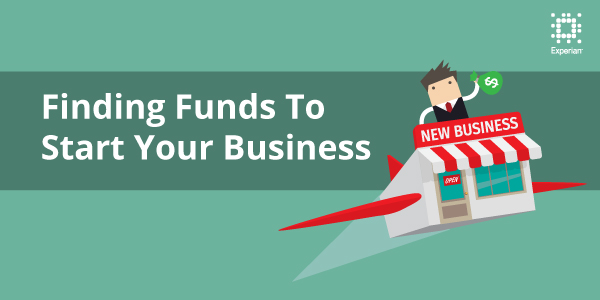
In celebration of National Small Business Week, today’s Guest Post comes from small business influencer Barbara Weltman, who shares insights on how to get money to start a business. Barbara Weltman (@BarbaraWeltman) is an attorney, a prolific author with such titles as J.K. Lasser’s Small Business Taxes and J.K. Lasser’s Guide to Self-Employment, and a trusted advocate for small businesses and entrepreneurs. She is also the publisher of Idea of the Day® and Big Ideas for Small Business® at www.barbaraweltman.com as well as host of a monthly radio show. She’s been named one of the 100 Small Business Influencers five years in a row. It takes money to start a business and get your idea off the ground. Depending on the nature of your business, you may require only a little bit of cash—your seed money—or you may need considerable funds. You can borrow money (debt) or find investors (equity) to meet your capital requirements. Here are some funding options to explore. Self-funding According to the National Venture Capital Association (NVCA), 82 percent of all businesses start with the owner’s personal resources. These can come in a variety of ways: Personal savings. This is the best source of capital because there are no strings attached—no repayments, no interest cost, no timing issues. Credit card borrowing. Using personal credit cards to start a business is pretty common. Sergy Brin and Larry Page did this to start Google in the 1990’s. The biggest downside: the high interest rate. Home equity borrowing. If you own a home that’s worth more than your mortgage, you can borrow with a home equity loan (the lender sets the borrowing limits). The downside: If the business fails and you can’t repay the loan, you could lose your home. Caution: Don’t dip into your 401(k) and IRAs to start businesses. Doing this not only costs you in taxes up front, but if the business fails, you lose your retirement savings. Check out our interview with Christina Edel on taking on business debt >> Loans and lines of credit Don’t expect to walk into your neighborhood bank to get a loan for starting your business. Even SBA loans, which are commercial loans guaranteed by the U.S. Small Business Administration, usually aren’t available for startups. If you have an excellent credit score—680 or better—you may qualify for a personal loan, but interest on such borrowing is high, even in today’s low interest environment. With a good credit score, your business may qualify for a line of credit; your personal guarantee can swing this financing. You only pay interest on the portion of the line you draw upon. For example, if you have a $50,000 line of credit and use $20,000, you pay interest on $20,000. NVCA reports that 41 percent of startup funding comes from loans and lines of credit. Family and friends A rich uncle or a fabulous friend may help you get started by either investing in your business or giving you a loan, as about a quarter of all business startups do. But ask yourself whether your relationships will sour if the business doesn’t succeed and your investor or lender loses money. Crowdfunding This relatively new way to find capital for a business can be done in a variety of ways: mere contributions (with no repayment by you), loans as discussed earlier, or, most recently, equity crowdfunding. All together this source of funding from strangers online accounts for about 3 percent of startup funds, according to the NVCA. Conclusion These are just the most common ways to find the cash to get started. You don’t have to choose just one resource; you can combine your options to raise the amount of money required. For example, you may have your friend invest some money and use your personal credit card to buy equipment or other items needed to open your doors for business. Just make sure you know what you’re getting into so you can succeed.
